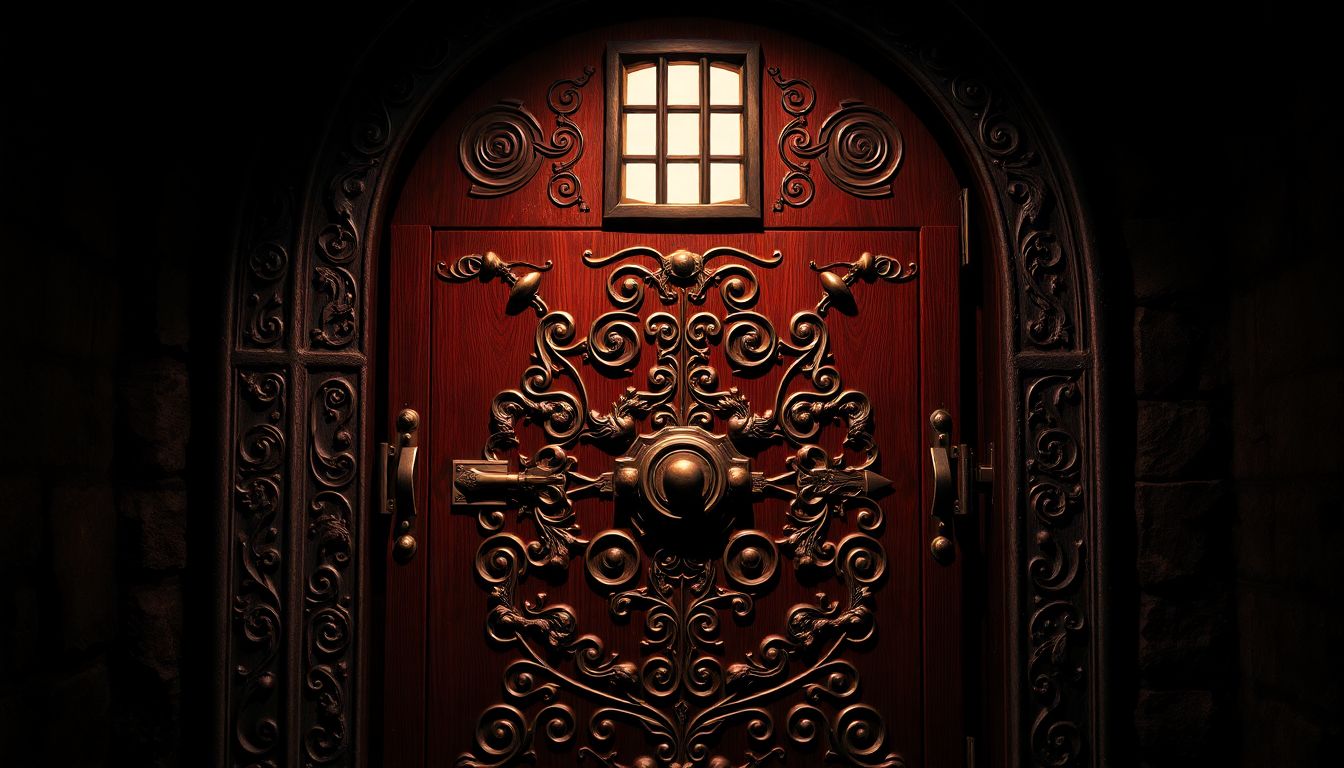The Ultimate Guide to Vault Doors: Security, Types, and Installation

Securing valuables has become increasingly important in today’s world. With rising theft rates and the value of assets skyrocketing, the need for effective security solutions is evident. Vault doors stand as a formidable defense against theft, fire, and other threats. This guide explores everything you need to know about vault doors, from types and features to installation and upkeep.
The Growing Need for Enhanced Security
Security isn’t just a luxury; it’s a necessity. Businesses and individuals alike require reliable means to protect their most valuable items. In a society where crime rates fluctuate, investing in a vault door can provide peace of mind.
Beyond the Basics: Understanding Vault Door Technology
Vault doors are more than just heavy barriers. They are sophisticated systems designed to withstand severe attacks, including break-ins and fire. Understanding how these doors work will help you make informed choices.
What to Expect from This Guide
This comprehensive guide covers various vault door aspects. By the end, you will have the knowledge to choose, install, and maintain a vault door tailored to your needs.
Types of Vault Doors: A Comprehensive Overview
High-Security Vault Doors: Features and Applications
High-security vault doors are designed for maximum protection. These doors often feature reinforced steel, complex locking systems, and tight seals to prevent unauthorized access.
Examples of High-Security Installations
- Bank Vaults: Banks utilize high-security vaults to safeguard cash and sensitive documents.
- Jewelry Stores: Expensive items require advanced protection measures.
Cost Considerations for High-Security Options
High-security vault doors typically range from $5,000 to $20,000, depending on features and installation requirements. The investment often pales compared to the value of what’s being protected.
Commercial Vault Doors: Balancing Security and Budget
Commercial vault doors provide a good balance between security and affordability. They are practical for businesses that need to protect cash, documents, and equipment.
Popular Applications for Commercial Vault Doors
- Small Businesses: Retail shops often use vault doors to secure cash registers.
- Offices: Important paperwork and sensitive materials benefit from commercial vault protection.
Factors Influencing Commercial Vault Door Selection
- Size and Space: Consider the available space and what needs storing.
- Budget: Choose options that fit your budget while meeting security requirements.
Choosing the Right Vault Door for Your Needs
Assessing Your Security Requirements: Risk Factors and Vulnerabilities
Understanding your particular security needs is vital. This involves evaluating the risks you face.
Identifying Potential Threats
- Burglary: Assess the likelihood of theft in your area.
- Fire: Consider if you need fire-resistant features.
Data-Driven Security Needs Assessment
Research shows that businesses without proper security measures are 300% more likely to experience theft. Knowing statistics helps gauge the importance of a vault door.
Matching Vault Door Specifications to Your Needs
Understanding Key Features
- Thickness: The thicker the door, the harder it is to breach.
- Material: Steel is standard due to its durability.
- Locking Mechanisms: Look for advanced options that meet your security needs.
Considering Future Scalability and Expansion
Making sure your vault door can adapt to future needs is essential. If you plan to expand, ensure that your door can accommodate changes.
Installation and Maintenance of Vault Doors
Professional Installation: Why It’s Crucial
Hiring professionals for installation reduces the risk of mistakes that could compromise security.
Avoiding Common Installation Mistakes
Improperly installed doors can lead to vulnerabilities. Ensure that all fittings are secure and compliant with standards.
Importance of Compliance with Building Codes
Be aware of local building codes to avoid legal issues. Compliance ensures that your installation is safe and secure.
Ongoing Maintenance and Inspection
Regular maintenance is essential for longevity.
Regular Inspections and Lubrication
Inspect your vault door at least once a year and lubricate moving parts.
Addressing Potential Issues Early
Identify and resolve minor problems before they become significant issues.
Vault Door Security Features: A Deep Dive
Advanced Locking Mechanisms: Exploring Different Technologies
The locking system is a critical part of a vault door’s security.
Mechanical Locks vs. Electronic Locks
Mechanical locks are reliable, while electronic ones allow for easier access control. Choose based on your preference for security and convenience.
Biometric Authentication and Keypad Access
Advanced systems use fingerprints or PIN codes for added protection. These features help ensure that only authorized individuals can access the vault.
Reinforcement and Construction Materials
Steel Grades and Thickness
Higher steel grades offer better resistance to tampering. Thickness often ranges from 1 to 6 inches.
Fire Resistance Ratings
Consider fire resistance ratings to protect your valuables. Look for doors that meet UL 72 standards for optimal fire protection.
Frequently Asked Questions (FAQs) about Vault Doors
How Much Does a Vault Door Cost?
Costs generally vary but expect to pay anywhere from $1,000 to $20,000 based on specifications and features.
What are the Legal Requirements for Installing a Vault Door?
Legal requirements depend on your local jurisdiction. Always check with local authorities to ensure compliance.
How Often Should a Vault Door Be Serviced?
Recommended servicing is once every year. This keeps your door in peak condition and reinforces security.
Conclusion: Safeguarding Your Valuables with the Right Vault Door
Investing in the right vault door is essential for securing your most valuable assets. By understanding the types, features, and maintenance involved, you can make informed decisions.
Key Takeaways
- Assess security needs to determine the perfect vault door.
- Professional installation ensures compliance and security.
- Ongoing maintenance is crucial for durability and performance.
Further Resources and Expert Advice
For more information, consider visiting the following:
Equipped with this knowledge, you’re now ready to protect your valuables effectively.
